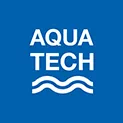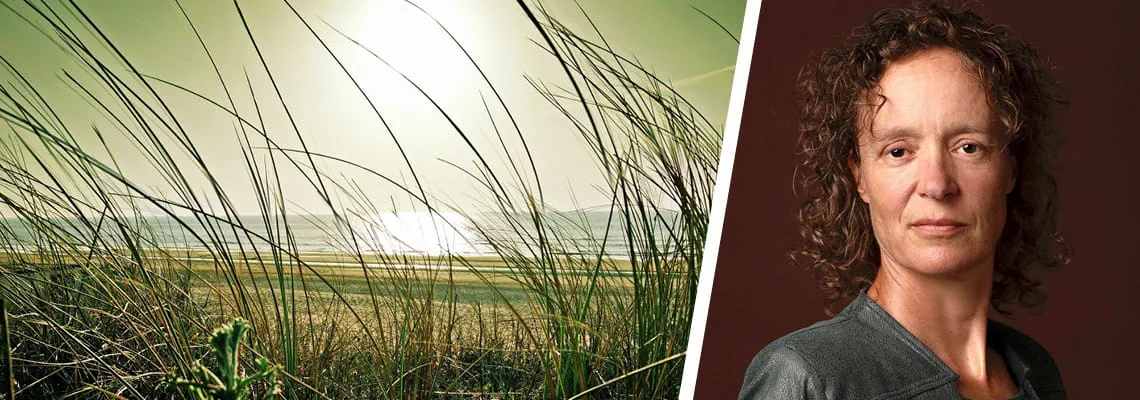To adapt to climate change, let’s take inspiration from nature-based solutions, writes Bianca Nijhof from the Netherlands Water Partnership.
Increased transparency
I was trained as a landscape ecologist and hence learned to think integrally. I am a passionate advocate of the nature-based solutions concept because of its integrated, inclusive and sustainable impact on so many aspects of society.
Nature-based water solutions are a great way to adapt to climate change – they are integrated, inclusive and sustainable. They not only protect us, but also ensure clean drinking water and sanitation for all.
Therefore I was pleased to see that this concept featured strongly during the Climate Adaptation Summit on 25 and 26 January. World leaders are backing an impressive and inspiring adaptation action agenda.
The summit was an important catalyst in keeping the challenges of climate change high on the agenda. It creates commitment, forges partnerships and sets the lines for our way ahead. We need to make climate adaptation happen on the ground, especially when it comes down to water.
“Nature-based solutions are also the starting point for wellbeing, quality of life, prosperity, biodiversity.”
Climate change is an ongoing process that is in constant flux. It requires a consistent and adaptive approach. We must not only resist it, but we need to move with it. This constant adaptation is why it’s called climate adaptation. Nature-based solutions do exactly that: move with it and adapt.
Turning to biomimicry
Biomimicry is the process where we learn from and copy nature; it is a great inspiration so we should use its tricks. Nature-based solutions work because developers understand the natural environment and natural processes.
What’s more, nature-based solutions are also the starting point for well-being, quality of life, prosperity, biodiversity. They touch upon social and economic sustainability, as well as environmental sustainability.
As we all know, water is at the centre of the impacts of climate change, and water is also key in turning the tide and leaving no one behind. This is the central, transformative promise of the 2030 Agenda for Sustainable Development and its 17 Sustainable Development Goals (SDGs).
The goal of SDG 6 goal is ensuring access to clean drinking water and sanitation for all. The fifth edition of the UNEP Adaptation Gap Report, presented recently, also categorically stated the pressing need for a focus on nature-based solutions.
Showcasing nature-based solutions
The Netherlands itself is a convincing showcase of inspiring water technology related nature-based solutions. We use our dunes to buffer and filter drinking water; we have developed highly effective and efficient biological wastewater treatment technologies; and we are even able to make water from air.
“We do not simply make dikes higher but combine them with new morphological structures, like dunes, beaches, floodplains and sandbars.”
Our Room for the River concept and our nature-based flood protection are gaining ground worldwide. We do not simply make dikes higher. Instead, we combine them with new morphological structures like dunes, beaches, floodplains and sandbars, to deliver the same level of protection while creating new space for tourism and recreation.
Using these nature-based solutions allows flexibility in adapting to even higher sea or river level rises than expected in the years to come.
The Netherlands Water Partnership is involved in the West African Coastal Areas Management (WACA) Program. This supports West African countries' efforts to improve the management of their shared coastal resources and reduce the risks affecting coastal communities.
Dutch and American experts have teamed up to help reduce climate vulnerabilities in urban, rural, and coastal communities in Maryland.
The Dutch Ecoshape consortium uses the ecosystem as the foundation in Indonesia to restore mangrove forests for coastal protection and sedimentation, and to support fishing for the local population.
Embedding the nature approach in financial conditions
For another true source of inspiration, I recommend reading ‘Building with Nature - Creating, Implementing and Upscaling Nature-based Solutions’.
Looking to the road ahead, if we are to put the commitment into practice, to accelerate and to scale up, we need to bring challenges and solutions together. I firmly believe in linking this expertise to the global challenges of climate adaptation.
“Financial insitutions including the World Bank are increasingly including the approach in their financing conditions.
Furthermore, the climate for sustainable, integrated nature-based solutions is clearly improving. Important financial institutions, including the World Bank and the Asian Development Bank (ADB), are increasingly including the approach in their financing conditions.
For example, the ADB was very interested in this approach during the virtual trade mission to Southeast Asia in the last quarter of 2020, where NWP led the water-track. That, too, is good news for the Dutch water sector.
In short, the time is right. Let's unite to turn commitment into concrete action. And rest assured that we will support the Dutch water sector with everything we have!

Bianca Nijhof
CEO
Netherlands Water Partnership
Related content
- Bianca Nijhof on water for the green recovery
- Bianca Nijhof matching money to water projects
- Mark Nelson living in a biosphere experiment
- Plant power: Hanoi spreads its roots with new wastewater system
- Explore all our coverage related to urban water







